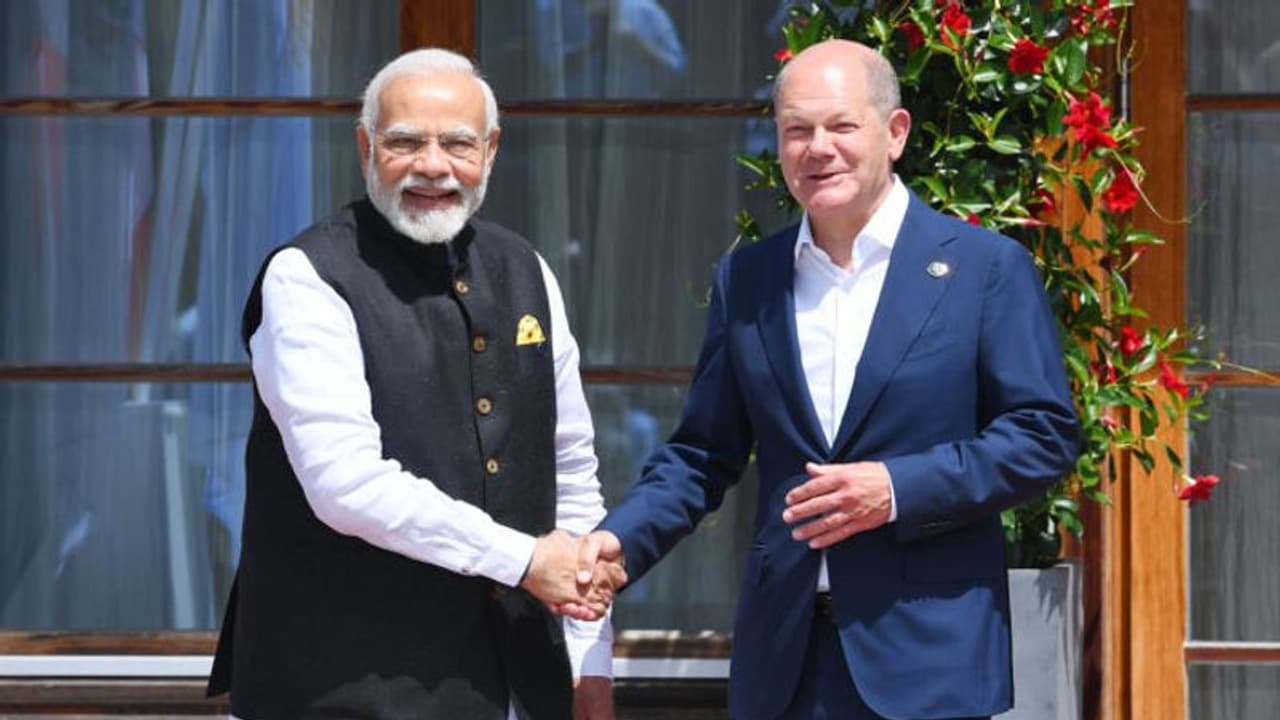"The Ukraine war has fundamentally altered the geo-political and geo-economic calculus of European players. Germany and France have been crucial in shaping the larger European response to the war alongside their working within the EU mechanism. India has been on the top agenda for both these European players," Dr Swasti Rao, Associate Fellow at Manohar Parrikar-IDSA's Europe and Eurasia Centre, told Asianet Newsable
German Chancellor Olaf Scholz will be arriving in India on a two-day visit from February 25 for the first time since he came into power to further enhance the bilateral relations between the two countries and also discuss the fast-evolving geopolitical scenario worldwide.

His visit to India coincides with the first anniversary of the Russian invasion of Ukraine. He will also travel to Delhi and Bengaluru during his stay in the country.
India's 'deepwater' story: How Modi govt's push for offshore exploration has appealed energy giants
Asianet Newsable reached out to Dr Swasti Rao, Associate Fellow at Manohar Parrikar-IDSA's Europe and Eurasia Centre, to understand the dynamics of his visit.
"It must also be remembered that this visit happens on the heels of the first anniversary of the Ukraine war that has fundamentally altered the geo-political and geo-economic calculus of European players. Germany and France have been crucial in shaping the larger European response to the war alongside their working within the EU mechanism. India has been on top agenda for both these European players," Dr Swasti Rao said.
"At the recently concluded Munich security conference, Scholz has reiterated Germany's commitment to upping its defence expenditure. German outreach to India should be seen in this larger European reset in driving its core interests," she said, adding, "The German outreach to India is also relevant in the context of Berlin's engagement of the Indo-Pacific Region and joining the Coordinated Maritime presence initiative by the EU that plans to ramp up its own role as a security provider in the region."
Last year, the German foreign office announced further deployments in the Indo-Pacific Region.
"This region is key for the development of blue economies, and several of the littoral states can be engaged by India and Germany for triangular cooperation on the developmental thematic. Triangular cooperation is one of the much-emphasized arenas of furthering cooperation between the two countries in their latest IGC," Dr Swasti Rao said.
Germany's foreign policy has always been high on its economic outlook.
"During his recent visits to West Asia and China, the Chancellor has been accompanied by a large business delegation. This visit will translate into better economic ties and investments that will lead to a new era of harnessing the true potential of the Germany-India partnership. In the global sense, this is yet another example of India's smart multi-alignment with important players and also to bolster itself economically and strategically in tune with India’s stature as a rising economic and military power," the expert said.
"This stand of India is being co-opted by major European powers who understand the global positioning of India's fast-evolving stature and the strength of its 1.4 billion populace. The Indo-German trade figures have improved from last year, but much ground must be covered to ramp up mutual trade and investments. This visit will prove to be a significant step ahead in that regard," she added
It must be noted that this is the first standalone visit of a German Chancellor to India since the biennial Inter-Governmental Consultation (IGC) mechanism was started in 2011. Last year, Prime Minister Narendra Modi visited Germany to meet him after his election personally. Since then, New Delhi has seen a string of high-profile visits from Germany.
Sockpuppets exaggerated about Gautam Adani, his family, 'conned' readers: Wikipedia
